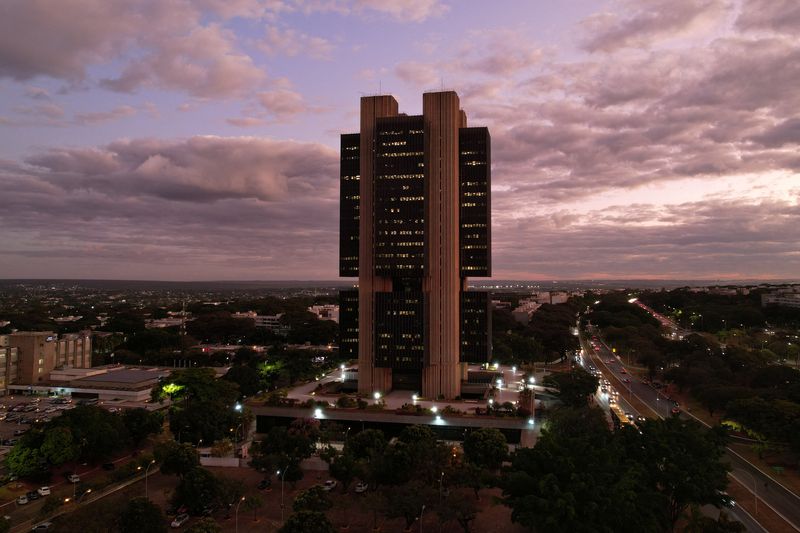Investing.com’s stocks of the week
BRASILIA (Reuters) -Brazil's current account deficit will significantly shrink starting next month as the purchase of crypto assets will no longer be considered an import affecting the trade balance, the central bank said on Monday.
According to Renato Baldini, deputy head of the bank's statistics department, the revision follows a methodological change in the International Monetary Fund (IMF).
Since 2019, cryptoassets have been treated as goods, impacting the trade balance. Now, they will be added to the capital account line.
"There will be significant impacts," Baldini said, noting the 2023 current account deficit will decrease to $19.1 billion from $30.8 billion as net crypto asset imports of $11.7 billion will no longer be included in the trade balance calculation.
For the January-May period this year, the current account deficit will drop to $13.8 billion from the $21.1 billion disclosed earlier on Monday, excluding net crypto asset imports of $7.3 billion.
Cryptoassets will be included in the capital account of the balance of payments, which records transactions involving the purchase and sale of non-produced and non-financial assets and capital transfers, when the June data are released next month.
This line traditionally shows low figures - $67 million from January to May.
With the IMF's methodological change, the overall balance of payments, comprising the current, capital, and financial accounts, will remain the same.
However, the analysis of a country's external position health typically looks at how much of the current account deficit is covered by net foreign direct investment (FDI) inflows, which fall under the financial account.
Baldini acknowledged that as the current account deficit decreases while the financial account remains unaffected by cryptoasset transactions, the comparison of the current account deficit coverage by FDI will present a more favorable picture for Brazil.
According to the central bank, Brazil posted a current account deficit of $3.4 billion in May, reversing the surplus recorded a year earlier due to a smaller trade surplus and a larger deficit in the services account.
The result was slightly narrower than the $3.5 billion deficit forecast in a Reuters poll of economists. In May last year, Latin America's largest economy had registered a $1.1 billion surplus in its current account transactions.
Foreign direct investment reached $3 billion in May, lower than the $4.75 billion projected in the poll.
The 12-month current account deficit rose to 1.79% of gross domestic product but was still comfortably covered by FDI, which was 2.95% of GDP.
The trade balance fell by $3 billion and the services deficit increased by $1.3 billion compared to the same month last year, the central bank said.
Trade exchanges between Brazil and abroad have been affected by the growing import of crypto assets, which rose 55% in May to $1.5 billion.
The deficit in the factor payments account rose by $168 million compared to May 2023, the central bank added.
Portfolio investments in the domestic market saw a $1.3 billion inflow in the month, composed of a $2.2 billion inflow in bonds and a $896 million outflow in stocks and investment funds.
